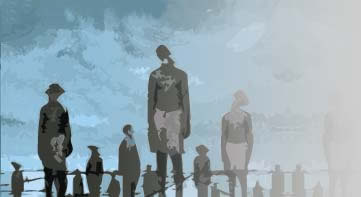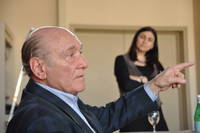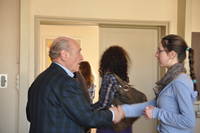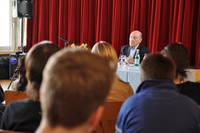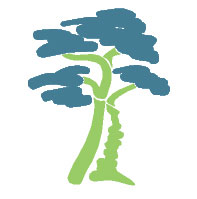
What is Holocaust education?
Holocaust education may be seen as a form of education in morale and values that sheds light upon Anti-Semitism, extremism, xenophobia and racism. As of Theodor W. Adorno Holocaust education is "the raising after Auschwitz".
By shedding light upon the causes and consequences of Holocaust, people should learn that those cruelties that happened, shall never happen again.
Communicating knowledge about the Holocaust in schools presents a major pedagogical challenge because it not only presents historical information, it also brings up questions of existential meaning and emotional aspects. The goal of the Holocaust education program is to provide an encounter with the past in order to learn for the present and the future. Because it also confronts students with experiences of violence, dehumanization, humiliation and mass murder, it also often elicits feelings of disbelief and denial, making it all the more challenging for teachers.
In the Holocaust education program, various perspectives are presented: (1) the rescuers, (2) the perpetrators and their supporters, and (3) the victims. In examining the rescuers, a positive role is communicated. On the subject of the perpetrators and their accomplices, the mechanisms that led up to the Shoah are described. How these mechanisms have led to human rights infringements and ethnic cleansing today is demonstrated with references to current events (violation of human rights and genocide).
In communicating the survivors’ perspective, meeting eyewitnesses is especially meaningful (as long as this is still possible). In a direct encounter, as well as from personal accounts in books and videos, students can identify with the stories of people who were persecuted. A personal meeting gives the otherwise abstract historical description a name and a face. One especially interesting element is placing the Holocaust in a Swiss context, in which positive roles and assistance can be brought in, as well as the historical omissions.
Holocaust education was one of the most important services offered by Tamach. Consultations were available to institutions, teachers, and students who wanted to examine the theme of the Holocaust as part of an event or project, history lessons or seminars. Many high-school and university students were researching and writing about the Holocaust and survivors living in Switzerland. In addition, Tamach arranged meetings between Holocaust survivors and students, held lectures on the topic of Holocaust education and was available for advising and accompanying school and seminar work on topic of the Holocaust.
Dr. Kurt Bigler/Bergheimer survived the Holocaust, thanks to Switzerland, and has been strongly committed to education about the Holocaust his entire life. The Dr. Bigler/Bergheimer Prize is dedicated to continuing this work. The Bigler/Bergheimer Prize is awarded annually to a person who has made an exceptional contribution to Holocaust education in Switzerland.
Events
Teaching about the Holocaust in schools is an enormous pedagogical challenge, touching on historical facts as well as emotions and even questions about the meaning of life itself. The goal of Holocaust Education is to look at the past in order to learn for the present and the future. Because it also confronts students with experiences of violence, dehumanization, humiliation and mass murder, it also often elicits feelings of disbelief and denial, making it all the more challenging for teachers.

